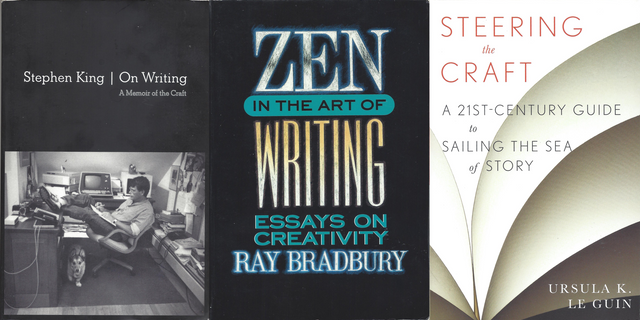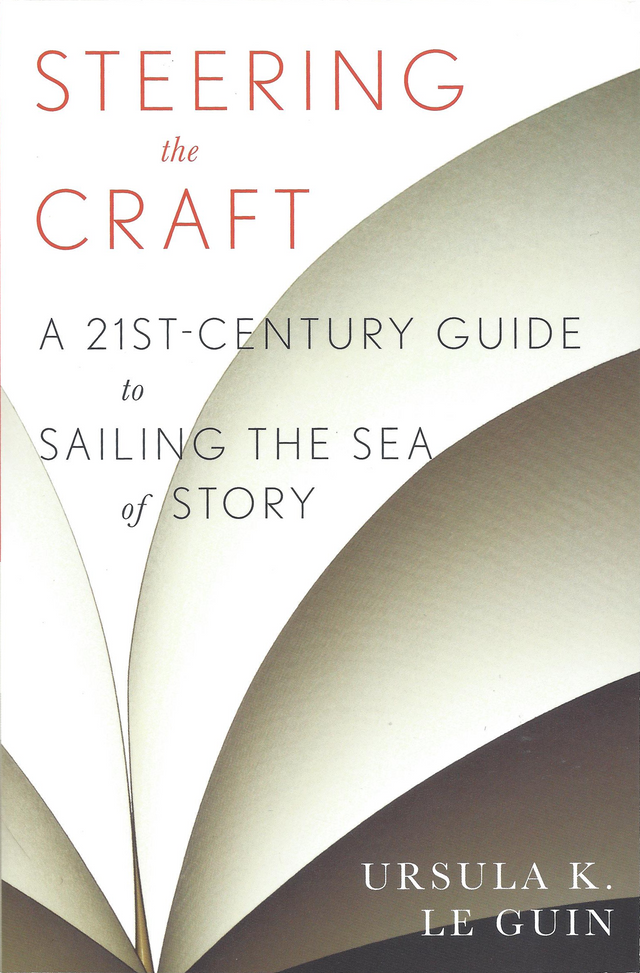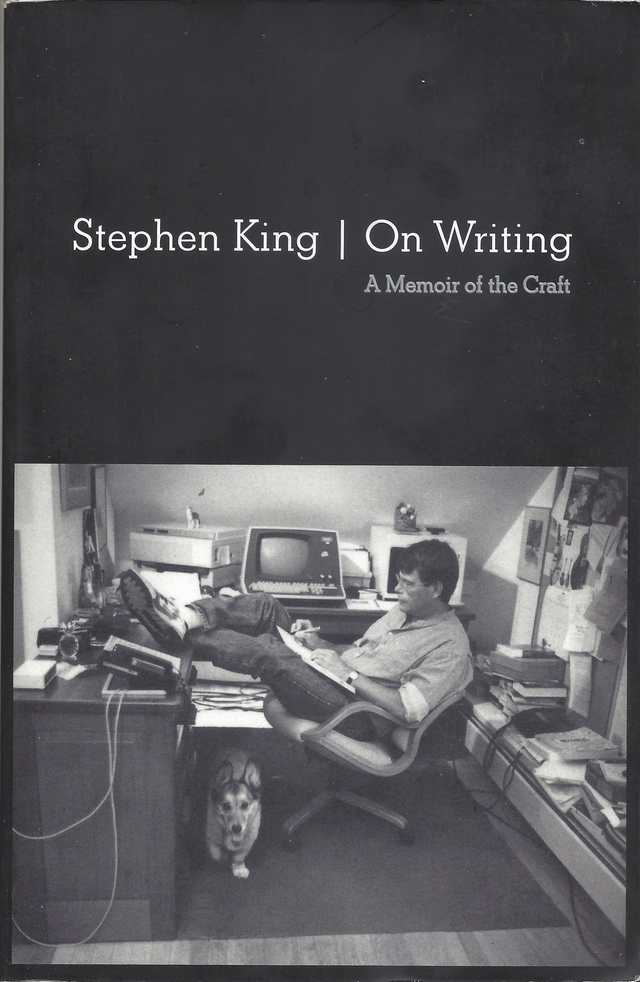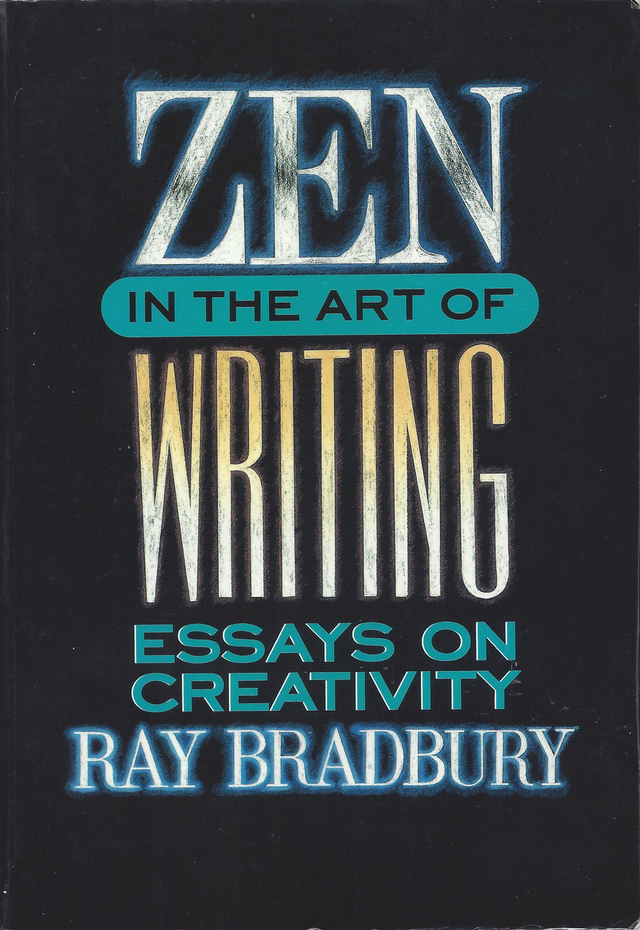TRIPLE REVIEW - Books for Writers, by Writers | Ursula K. Le Guin, Stephen King, and Ray Bradbury
I am pleased to present to my audience a review of three books all at once: Ursula K. Le Guin's Steering the Craft, Stephen King's On Writing, and Ray Bradbury's Zen in the Art of Writing. (For where I've been since last week, skip to the end.)






Each of its ten chapters - ranging from the sound of your writing to the usage of adjectives to point of view - introduces you to the chapter's focus, telling you about it (and Le Guin is always witty and intelligent and deeply real about everything) and towards the chapter's end gives you a number of examples of what she was talking about as well as an exercise to hone your own skills.
Always, she takes down the most stupid and inane of writing advice with the harsh force of a reality based around fact: You will never find advice like "No paragraph should be more than four sentences long" or "Never use 'their'" in here. Both, in fact, are specifically cited as examples of poor advice.
On Writing is a far different beast and of the three Stephen King books I have read it is my favorite - probably because it's the shortest of them. (I thought It was a slog and The Dark Half was only just an improvement.) Most amusing to me was his saying that he strived to follow Strunk & White's rule of "Omit unnecessary words." Which, yoif. I don't know if I agree with that.
This book effectively acts in two parts: the first of these is autobiographical, as Stephen describes how he got into writing, his early mentors in writing and their advice, and his eventually rise to both selling his stories and then making a success from them. And, too, his early experiences with pain, and the painful tale of his addiction to drugs and alcohol.
From there he tells us about the toolbox - probably the shortest section aside from the three forewords - and then delves straight into what the book is ostensibly about: the section On Writing. He describes how he goes about putting together sentences and drafts, his own personal practices when writing to get from first draft to final draft. He offers his process as model to the aspiring writer.
The point here, I think, is not so much as to mimick his writing process yourself so much as to find out your own and to then be consistent in it: the exact mimickry of his process, be it writing first draft with "door closed" and second with "door open," or writing exactly 2,000 words every day, is not needed.
Penultimate is On Living, in which he talks about the accident in 2000 that very nearly left him a "human vegetable" - thank god it did not!
Final are two And Furthermores. The first of these is something largely unique: it presents to you a story, or at least a scene, first in its raw form and then after editing. Comparing the two is a fruitful exercise: the first draft will seem pretty good at first, but after having gone through editing, it is much better.
The second is a reading list, both the original reading list from 2000 and an updated reading list (I will note that this updated reading list is only present in the 10th Anniversary edition).
Unique of the books here is that Zen in the Art of Writing is that, rather then an original work of its own, it is instead a collection of essays by Ray Bradbury dating from 1961 to 1986. There are nine of them and the linking thread between them all is that they celebrate writing - treating it as an act of joy.
As such there is little dived into the fundamentals - sentence construction and so on. Instead we get some absolutely gorgeous prose talking about writing, the joy of it, and what inspired Bradbury. Unique also is his prescription to the writer's mind - a garden needs fertilizer, after all, and so Bradbury recommends poetry and books of essays. Reading, and reading widely.
Reading about the inspiration of Bradbury's short stories - and you can find him talking about the inspirations for a good dozen of them - is one of my own favorite parts of the book. Each essay is a joy to read, thanks to Bradbury's lovely prose and the sheer joy he takes in it.

I, for one, expect to get great usage out of the exercises in Steering the Craft and will enjoy poring over the draft present in On Writing, with a trip to Zen every so often as a reminder to enjoy it.

Where have I been since my retrospective on The Dagger and the Coin? Well, I went on vacation to Chicago for the weekend - from Friday the 3rd to Monday the 6th. I enjoyed myself immensely and it is in fact in Chicago that I found On Writing.
At Chicago I also purchased copies of An Autumn War and The Price of Spring, meaning that my collection of the Long Price Quartet is at last complete. Which makes me very happy. (I also purchased books 2 and 3 of The Expanse, an issue of Galaxy, and three issues of F&SF.)
I am, incidentally, going to put up at some point an addendum post to Dagger and the Coin detailing some more miscellaneous and nebulous observations and critiques I had of the series as a whole.
As a birthday gift I am now subscribed to F&SF so please expect a review of the July/August issue shortly. And of the succeeding issues to come in 2018 and 2019. That's pretty cool.
Anything in particular you want to see more of? Book reviews? They'll be coming. Soundtrack reviews? Haven't done them in a while, I know. Magazine reviews? I have literally dozens of back issues of Asimov's and as just mentioned you'll get F&SF reviews foisted on you going forwards. More Journey into Lovecraft? My hold expired on The Complete Fiction and I now owe late fees to the local library (which, let's face it, is something I consider a donation) but I am reasonably sure full texts are available on the Lovecraft website.
I am, ultimately, here for - well, myself. But I try to take you into account too. (Isn't painful honesty a beautiful thing?)
Good post. I've read On Writing and Zen, but I hadn't heard of the third. I'll have to check it out.
This post was shared in the Curation Collective Discord community for curators, and upvoted and resteemed by the @c-squared community account after manual review.